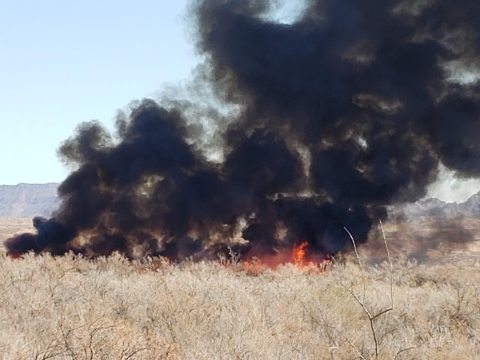What We Do
The National Wildlife Refuge System is a series of lands and waters owned and managed by the U.S. Fish and Wildlife Service. Wildlife conservation is at the heart of the refuge system. It drives everything we do from the purpose a refuge is established, to the recreational activities offered there, to the resource management tools we use. Selecting the right tools helps us ensure the survival of local plants and animals and helps fulfill the purpose of the refuge.
Management and Conservation
Refuges use a wide range of land management tools based on the best science available. Some refuges use prescribed fires to mimic natural fires that would have cleared old vegetation from the land helping native plants regenerate and local wildlife to thrive. Other refuges contain Wilderness areas where land is largely managed in passively. The management tools used are aimed at ensuring a balanced conservation approach where both wildlife and people will benefit. At this field station our conservation toolbox includes: prescribed fire, agriculture for wildlife (farming), removal of invasive species invasive species
An invasive species is any plant or animal that has spread or been introduced into a new area where they are, or could, cause harm to the environment, economy, or human, animal, or plant health. Their unwelcome presence can destroy ecosystems and cost millions of dollars.
Learn more about invasive species , and restoration of riparian riparian
Definition of riparian habitat or riparian areas.
Learn more about riparian and wetland habitat.
Law Enforcement
U.S. Fish and Wildlife Service law enforcement officers have a wide variety of duties and responsibilities. Federal law enforcement officers ensure the safety of the public and the protection of natural resources. They address illegal activities, including poaching, taking of endangered species, dumping of trash, illegal operation of all-terrain vehicles, trespassing and more.
Laws and Regulations
Recreational activities such as wildlife viewing, boating, fishing, and hunting do not require special use permits. However, hunting and fishing do require state issued licenses. Other activities conducted on the refuge may require a special use permit.

